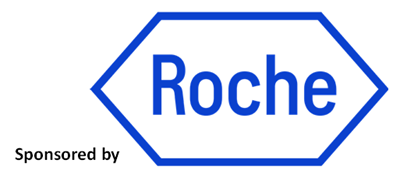PSI Webinar: Navigating HTA and Patient Access with Insights from Indirect Treatment Comparisons

Date: Thursday 11th April 2024
Time: 14:00-15:30 BST | 15:00-16:30 CEST
Location: Online via Zoom
Speakers: Lara J Wolfson (MSD), Jenny Devenport (Roche), Alex Simpson (Roche) and Christian Röver (University Medical Center Göttingen).
Who is this event intended for? Statisticians wanting to learn more about the use of indirect treatment comparisons in HTA.
What is the benefit of attending? Learning from a range of experts sharing their experiences with ITC in the pharma industry.
Cost
This event is free of charge to both Members of PSI and Non-Members.
Registration
To register for this event, please click here.
Overview
Talks from speakers will cover an introduction to HTA and indirect comparisons for value assessment before focusing in more specifically on topics related to the use of indirect treatment comparisons for patient access.
Speaker details
|
Speaker
|
Biography
|
Abstract
|
|

Lara J Wolfson
|
Lara Wolfson, PhD, is the Associate VP and Head of HTA Statistics at MSD in Zurich, Switzerland. Leading a team of 75+ statisticians, she pioneers quantitative solutions for Health Technology Assessment (HTA) challenges. Lara's career spans roles at Merck, Janssen, and the World Health Organization, focusing on biostatistics, health technology assesment, vaccines, epidemiology, and health economics. She also taught at Brigham Young University (US) and the University of Waterloo (Canada). Dr. Wolfson co-leads the HTA ESIG (European Special Interest Group) of EFSPI (European Federation of Statisticians in the Pharmaceutical Industry), and holds MS and PhD degrees in Statistics from Carnegie Mellon University, with an undergraduate background from Simon Fraser University.
|
Introduction to HTA and indirect comparisons for value assessment
|
|

Jenny Devenport
|
I solve problems. Throughout more than 20 years as a statistician in the healthcare industry (public health, device and drug development, and medical affairs and access), my goals are to ask the right questions and develop optimal solutions to get patients the best care. I champion scientific curiosity, use of diverse data sources, effective measurement, and meticulous study design. As a leader and coach, I get people to exceed themselves by leaving their comfort zones, appreciating their strengths, building strategic collaborations, forming extensive personal networks, and aiming for impact locally and globally.
Currently I work in Product Development Data Sciences at Hoffmann La Roche, leading a team of programmers and statistical scientists with projects spanning the non-oncology portfolio from early stage through end of lifecycle. I also lead a community dedicated to creating and sharing best practices for collaboration and evidence generation supporting access and clinical practice. In addition, I work externally with industry professional societies and special interest groups to identify and execute opportunities to advance the field.
I received my M.S. and Ph.D. in the United States, where I split my energy between theoretical and applied statistics. In my free time I enjoy the exhilaration, natural beauty, and rich history while racing my sons up the mountains of Switzerland.
|
ITC is not for me: Why hallmark evidence may not influence HCPs
Delivering new medicines for patients is the goal of drug development. But the evidence needs of HTA / payer and clinical practice stakeholders often go beyond those required for regulators. And they are not always set in stone, but morph as the competitive landscape changes. There is a real need for product differentiation and demonstration of the relative value of new medicines compared to their predecessors to enable optimal use in clinical practice. HTA bodies have often employed ITC to compare approved treatments and evaluate relative value instead of or in addition to direct head-to-head comparisons within trials (which are not always available). But this tool is generally not something that resonates with healthcare providers (HCPs) and therefore, additional clinical studies are often required to address their questions. In this presentation, I will discuss some of the reasons–scientific, statistical, and pragmatic– that ITCs are not necessarily highly weighted in HCP clinical decision making in practice.
|
|

Alex Simpson
|
Alex Simpson, MSc, is an epidemiologist by training and has been working in the pharma real-world data space for 7 years. In his current role at Roche as an Access RWE Strategy Lead, he leads the development of RWD studies that are used to support reimbursement dossiers across the world which ultimately enable patients to access new therapies. Alex has a keen interest in how RWD can be used to support patient access with a particular focus in the rare disease space.
|
Can patient access be secured with single arm trials?
Single-arm trials (SATs) are increasingly being reviewed by payers and Health Technology Assessment (HTA) agencies in situations where a randomised clinical trial is unfeasible due to ethical or operational reasons. However, SATs pose a considerable challenge for HTA agencies when assessing new therapeutic interventions as there is no direct comparison to contextualise the findings seen from the SAT. This presentation will explore some of the alternative comparative methods that drug manufacturers may use to demonstrate treatment benefits during the HTA appraisal, some of the pitfalls associated with such methods and what the future may hold for these types of value assessments.
|

Christian Röver |
Christian Röver is a research associate at the Department of Medical Statistics, University Medical Center Göttingen, Göttingen, Germany. After studying Statistics at Dortmund University and Iowa State University, he earned a PhD degree at The University of Auckland. While his masters thesis was on classification methods, the PhD thesis was on computer intensive methods for Bayesian parameter estimation. After his PhD, he went on to work mostly on signal detection and parameter estimation problems at the Max Planck Institute for Gravitational Physics (Albert Einstein Intitute) in Hannover, before moving to medical statistics at the University Medical Center Göttingen. His current methodological research focus is on Bayesian methods for meta-analysis, their application in the common case of only few studies, and their implementation in R. |
Bayesian random-effects meta-analysis using empirically motivated heterogeneity priors.
In Bayesian meta-analysis, the specification of prior probabilities for the between-study heterogeneity is commonly required, and is of particular benefit in situations where only few studies are included. Among the considerations in the set-up of such prior distributions, the consultation of available empirical data on a set of relevant past analyses sometimes plays a role. Properly summarizing historical heterogeneity data, however, is tricky; we extended the commonly used normal-normal hierarchical model for random-effects meta-analysis to infer a heterogeneity prior from previous data (Röver et al., 2023). We use an example data set to demonstrate how to fit a distribution to empirically observed heterogeneity data from a set of meta-analyses, including considerations of parametric distribution families and immediate applicability. We also outline the results from applying such an approach to "historical" HTA data from the Institute for Quality and Efficiency in Health Care (IQWiG, Germany) (Lilienthal et al., 2023). |






